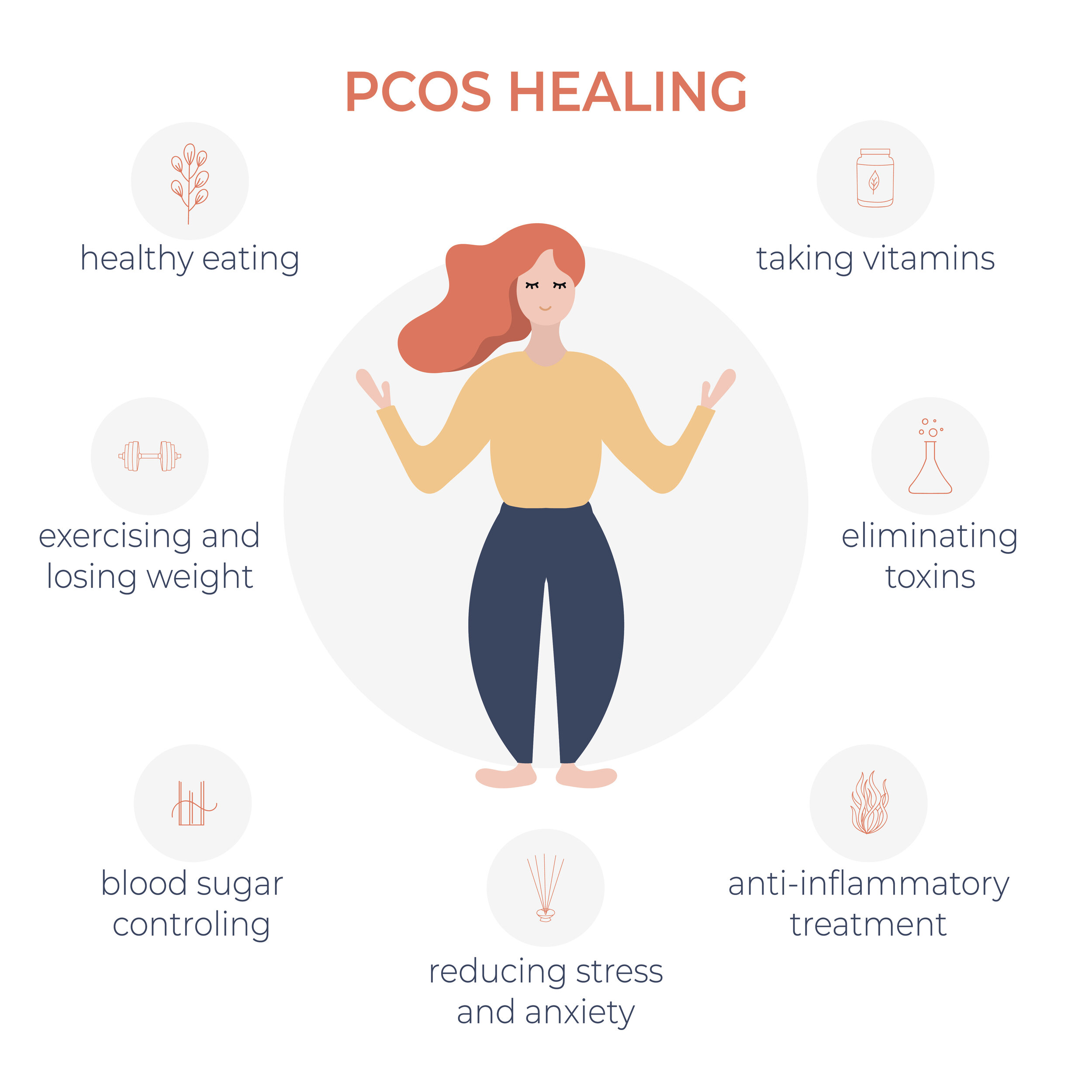Polycystic Ovarian Syndrome (PCOS)
Polycystic ovarian syndrome (PCOS) is a common hormonal condition affecting one in ten women of reproductive age. It can cause issues with your period, pregnancy, acne, weight and hair growth, and can be diagnosed through a range of testing carried out by a health professional like a pregnancy nutritionist
Despite how common PCOS is, this disease, as you may have gathered from trying to conduct your own research, is not a simple one. There are many different factors contributing to PCOS, like lifestyle, stress, nutrition, and your genes will come into play too.
One of the most common contributing factors, however, is insulin resistance. Insulin resistance happens when the insulin hormone in your body isn’t regulating your blood glucose levels. If the cells in your body aren’t reacting to the insulin’s signals to absorb the glucose in your bloodstream, the glucose will keep building up. This in turn triggers even more insulin to be produced.
The start of your insulin resistance is not always as straightforward as too much sugar or not enough exercise. It could be you’ve caused your body stress from too much exercise, or not gotten enough sleep. Maybe you’ve been eating food you’re intolerant to without realising it. These kinds of stresses are exactly what can lead to insulin resistance.
But, you might ask, what does insulin resistance have to do with PCOS? How are the two actually related? Well, high levels of insulin isn’t just a symptom of PCOS, it’s actually a driving factor. This is because an increase in insulin can cause your ovaries to overproduce testosterone, and can also cause a decrease in ovulation.
So now you know this, what can be done?
You’ve probably come across your fair share of articles calling PCOS “incurable”. And to a certain extent, that’s true. There’s no easy way out of it, but this doesn’t mean PCOS can’t be regulated. By giving your body the right environment, you can control your blood sugar, which in turn will help to regulate your PCOS and insulin resistance.
The first thing to take a look at is your diet. And no, this doesn’t mean removing every last tub of ice cream from the freezer and locking your chocolate in a safe. It also doesn’t mean you should be cutting your meals in half and sticking to endless days of salads and greens. When it comes to your diet, think about real whole food. It’s important you eat enough protein, vegetables and good fats, while reducing sugar, processed foods and junk. You should never feel hungry or be “on a diet”. It’s about a life-long journey of nourishing your body with foods for health.
It’s also important to think about sensitivities and intolerances. Anything consistently causing you discomfort may be a sign you have an intolerance or sensitivity. These may cause things like reflux, vomiting, bloating or diarrhoea, so finding a health professional to assist you in identifying these triggers can make a big difference.
While exercise is a great way to keep healthy, there’s also something to be said about overexercising, particularly when it comes to high intensity exercise. Pushing yourself too hard will cause a lot of unneeded stress on your body, increasing cortisol and insulin resistance. Interspersing your sessions with some low-intensity workouts like walking, casual cycling, yoga or Pilates is great.
Speaking of unneeded stress, stress management is also a big factor in regulating your PCOS. Stress is unfortunately essential, and very much a normal part of our lives. Without stress, we wouldn’t be able to rise to a challenge and achieve more. This being said, too much stress, as you might already be familiar with, will start causing you a whole team of problems.
Some great ways to alleviate your stress is to get in a good night sleep and practice mindfulness. Taking a moment for yourself by meditating or squeezing in a quick breathing exercise are great steps to lowering your stress levels and improving your mood.
But this isn’t everything. What you need to remember is every body is different, and what works for some people might not work for you. PCOS is no light matter, and neither is insulin resistance, so make sure to get a full assessment with a qualified nutritionist to make sure your individual needs are being considered. There are fantastic supplements a clinical nutritionist can prescribe, along with diet and lifestyle changes which can help you minimise the impact of PCOS.
Book an appointment with Renee Bailey at Defining Health today so she can help you be the healthiest, happiest version of you!


